Gut microbes participate in food preference alterations during obesity
- PMID: 34424831
- PMCID: PMC8386729
- DOI: 10.1080/19490976.2021.1959242
Gut microbes participate in food preference alterations during obesity
Abstract
Hypothalamic regulations of food intake are altered during obesity. The dopaminergic mesocorticolimbic system, responsible for the hedonic response to food intake, is also affected. Gut microbes are other key players involved in obesity. Therefore, we investigated whether the gut microbiota plays a causal role in hedonic food intake alterations contributing to obesity. We transferred fecal material from lean or diet-induced obese mice into recipient mice and evaluated the hedonic food intake using a food preference test comparing the intake of control and palatable diets (HFHS, High-Fat High-Sucrose) in donor and recipient mice. Obese mice ate 58% less HFHS during the food preference test (p < 0.0001) than the lean donors, suggesting a dysregulation of the hedonic food intake during obesity. Strikingly, the reduction of the pleasure induced by eating during obesity was transferable through gut microbiota transplantation since obese gut microbiota recipient mice exhibited similar reduction in HFHS intake during the food preference test (40% reduction as compared to lean gut microbiota recipient mice, p < 0.01). This effect was associated with a consistent trend in modifications of dopaminergic markers expression in the striatum. We also pinpointed a highly positive correlation between HFHS intake and Parabacteroides (p < 0.0001), which could represent a potential actor involved in hedonic feeding probably through the gut-to-brain axis. We further demonstrated the key roles played by gut microbes in this paradigm since depletion of gut microbiota using broad-spectrum antibiotics also altered HFHS intake during food preference test in lean mice. In conclusion, we discovered that gut microbes regulate hedonic aspects of food intake. Our data demonstrate that gut microbiota modifications associated with obesity participate in dysregulations of the reward and hedonic components of the food intake. These data provide evidence that gut microbes could be an interesting therapeutic target to tackle hedonic disorders related to obesity.
Keywords: Gut microbiota; fecal material transplantation; food intake; hedonic; obesity; reward.
Conflict of interest statement
No potential conflict of interest was reported by the author(s).
Figures
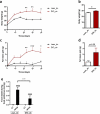
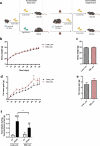
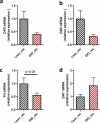
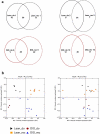
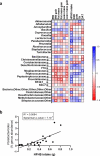
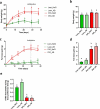
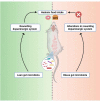
References
-
- de Araujo IE, Schatzker M, Small DM. Rethinking food reward. Annu Rev Psychol. 2020;71:139–164. - PubMed
Publication types
MeSH terms
LinkOut - more resources
Full Text Sources
Other Literature Sources
Medical
Research Materials
